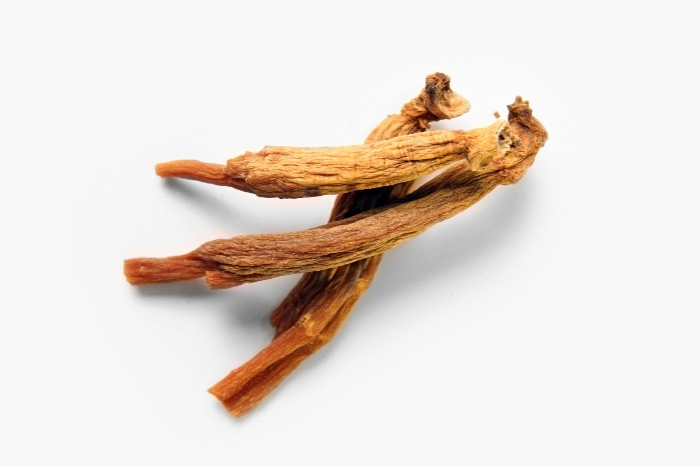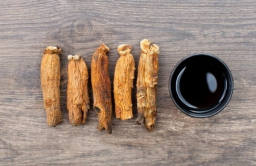-
KOSPI 2577.27 -2.21 -0.09%
-
KOSDAQ 722.52 -7.07 -0.97%
-
KOSPI200 341.49 +0.02 +0.01%
-
USD/KRW 1396 -2.00 0.14%
Red ginseng proven to treat drug addiction: Research
Bio & Pharma
Red ginseng proven to treat drug addiction: Research
S.Korean researchers demonstrate improvement in drug dependence and withdrawal symptoms by rat experiments
By
Oct 17, 2023 (Gmt+09:00)
1
Min read
News+

It has been revealed that red ginseng significantly improves drug addiction and withdrawal symptoms caused by substance abuse.
The research results containing this information were presented by a team of professors from Ewha Womans University's Medical School, led by Prof. Oh Se-kwan, at the Korean Society of Ginseng's quarterly conference held at Sookmyung Women's University in Seoul on Tuesday.
In this study, rats were divided into two groups, one receiving only morphine (10 mg/kg) to measure physical dependence on the drug and the other receiving both morphine and ginseng extract (250 mg/kg). They were then administered the same amount of the drug for seven days, and their jumping behavior during withdrawal was observed for 30 minutes.
The results showed that the control group exhibited about 40 jumping behaviors, while the ginseng-administered group showed a reduction of around 50%. Moreover, the ginseng group was found to have recovered about 90% of the reduced liver glutathione levels caused by morphine addiction compared to the control group.
"The main component of ginseng, ginsenoside Rh2, is believed to significantly suppress peculiar behaviors in morphine-addicted rats, such as teeth chattering, and Rg3 component greatly inhibits withdrawal symptoms like grooming and body shaking," Prof. Oh. explained. "When addicted to morphine, oxidative stress in the mitochondria in the cerebral cortex increases significantly, but ginseng was shown to inhibit this."
"Ginseng gained recognition as a remedy for opium addiction during the Qing Dynasty in the 19th century when opium addiction was on the rise," an official from the Korean Society of Ginseng said.
Write to Hyun-Ah Oh at 5hyun@hankyung.com
More To Read
-
Jul 03, 2023 (Gmt+09:00)
-
May 11, 2023 (Gmt+09:00)
-
Mar 16, 2023 (Gmt+09:00)
-
 Bio & PharmaRed ginseng prevents flu, pneumonia: research
Bio & PharmaRed ginseng prevents flu, pneumonia: researchFeb 08, 2023 (Gmt+09:00)





